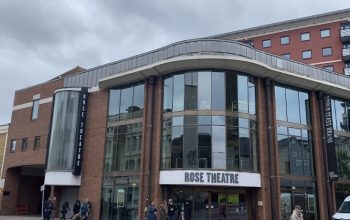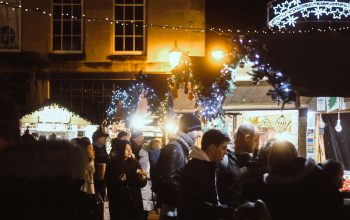If you visited Kingston’s Odeon cinema last Wednesday night, you may have spotted one audience that was stood out.
Mostly grey-haired, subtly elegant and respectable, the group looked out of place among the popcorn-eating hordes.
This audience was there for a special showing of the Royal Opera House’s Eugene Onegin, Tchaikovsky’s classic opera, broadcast live from Covent Garden.
Maureen Rhodes, 75, from Surbiton, is a regular opera-goer. “I don’t think it can replace the actual atmosphere at where it is happening, but it is a very good second,” she said.
The Royal Opera House started to transmit live opera to local cinemas in 2007, and the network of such screenings has been expanding ever since.
Opera lovers in south-west London can go to the Curzon in Richmond, as well as the Kingston Odeon. Indeed, the Royal Opera House said its performances have been shown in 900 cinemas in 32 different countries, including the UK’s seven cinema chains.
George Dalnow, 86, from Surbiton comes to cinemas to watch opera about once a month. He said: “It’s not quite the same [as going to the opera house], but it saves us a lot of bothers and travelling. It’s very convenient, just on our doorstep”.
His wife Ann, 78, said their age was becoming a consideration. “Access to local cinema is much easier now for us than going to town. We used to go to the English National Opera or to the Covent Garden fairly regularly.”
The screenings are “hugely successful”, said Odeon, and, according to the Royal Opera House, La Bohème on January 15 was the nation’s second biggest grossing cinematic event of that night, behind Les Misérables. “The average cinema audience doubled in the UK during season 2011-12”, said Laura Cotham, at the Royal Opera House.
But it’s not only about money. “Reaching out and opening up is at the very core of our work at the ROH now. It is central to our operations, and is as important as the work that takes place on the mainstage”, said Ms Cotham.
According to Brenda Swamon, 65, from Hampton Court, such screenings have additional benefits that the conventional opera experience does not. “You can see the costumes better. You will never get as close in the opera house as the cameras get to the beautiful costumes, which is especially important in the ballet,” she said.
For an inexperienced opera-goer, the multi-camera filming can be a blessing and a curse.
It definitively adds visual dynamics and lets the viewer see the slightest details. However, the viewer can’t avoid realising with perfect clarity that the actors do not quite look like you would expect the youngsters in the classic Russian love and death story to look.
Tickets are also cheaper at the cinema, and much easier to get.
The Royal Opera House will be staging the Alice in the Wonderland ballet in March and April, and the performances are already sold-out.
Whether it’s the perfect substitute for a real visit to an opera house or not, it seems to be doing its job. “I enjoyed it immensely,” said Mr Dalnow after Wednesday’s screening of Eugene Onegin.




